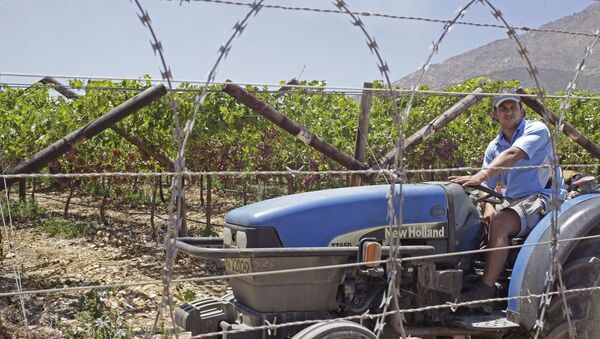Sputnik discussed the issue with Daniel Bradlow, SARChI professor of International Development Law and African Economic Relations at the University of Pretoria.
Sputnik: How realistic does the bleak outlook for the South African economy voiced by analysts sound to you?
Daniel Bradlow: I think it's too soon to reach such overblown conclusions. I think there're a couple of things to keep in mind. One is that the need for land reform in South Africa is great; and it needs to be done in a lawful way that is predictable. The problem at the moment is that no one is quite sure exactly what's happening because of the fact that we're in the middle of the process of considering a potential amendment to the constitution to deal with land reform. But it's clear that the government is intending to do this in a lawful way; they're not continuing to do it in the same land-grabbing unlawful way that was done in Zimbabwe. To me, I think that concerns that it's going to lead to the collapse of the economy are seriously overblown.
READ MORE: ‘Bad for Brand South Africa': MPs Recommend Ending Captive Lion Hunts
That's number one. Number two is that even if there's an amendment that says that there can be expropriation without compensation, it's not clear what it means exactly, what exactly the government can take. They have made it clear that there will be a range of factors that will need to be taken into account before you take land without compensation, which means that many people will probably get compensation. I mean that there will be a process, and the people will be able to challenge that process lawfully if they don't agree with it. So, the amount of actual expropriation without compensation is not at all clear at this point.
Sputnik: I understand that there will be a lot of vacant land that is not currently being used that will be the first in line to be re-appropriated.
Daniel Bradlow: There's a lot of land that's potentially useable that is not being used; and that's true both within cities and within rural areas. And it's important to remember that South Africa is predominantly an urban society today. For example, in the cities in Johannesburg, there're many buildings which effectively have been abandoned; and for the government to expropriate those and turn them into liveable accommodations would not be a terrible thing, it would be useful. It's not at all clear why owners who have abandoned their property should be given compensation, certainly at a market rate. As you say, in the rural areas, there's a lot of land that people are not using; and so before it gets to the point where farmers who are productively farming their lands start being threatened, I think we've got a very long way to go.
Sputnik: Of course, those who are fearmongering are always talking about the Zimbabwe scenario; can you tell us why the situation in South Africa would be significantly different than what happened in Zimbabwe?
Daniel Bradlow: In Zimbabwe, the land was essentially occupied and possibly taken over from people without any legal recourse or without following any legal procedure to do that. In South Africa, the government has made it clear that that's not what will happen; that's why we're going through this process of considering an amendment to the Constitution. That, I think, is a very big difference because it means that people's rights will be protected in the process, they will have a legal right to challenge things. The government will follow legal procedures to take over land.
READ MORE: South Africa Wants to Get Veto Power in UN Security Council — Foreign Minister
That means that the rule of law will be strengthened through this process, whereas in Zimbabwe it was completely undermined and that obviously destroyed confidence in a lot of other things. Number two is that once the land was taken over in Zimbabwe there was no support necessarily given to the people that took over the land to farm the land; it was not clear that it was given to people who really needed it rather than to cronies of the government because it became a lawless process. And none of that looks like what would happen in South Africa, because the government is looking at extension services to support people who get access to land. The goal is to do that in a much more orderly way. The institutions, particularly the legal system in South Africa, are robust, so it's credible that they will be able to rely on the law to do all this.
Daniel Bradlow: Right. Just to give you some historical background, in 1913 there was a Land Act which essentially deprived Africans of ownership of land. From then through the end of the apartheid era, whites controlled about 87 percent of the land; white are about 13 percent, maybe a little bit less, of the population. So, there's clearly a need to redistribute land so that it's more reflective of the broader population.
Some of the groups that were deprived of land over the last century have moved now, so it's not clear that all of them would necessarily want to go back to live in the rural areas where they lived before. But land is a basis of wealth, so if you want to redistribute wealth and to make the society more equitable, there has to be some process for compensation and redistribution of lands so that those people who would like access to what was their traditional land get access, those people who need access to wealth get some more access to wealth. This is playing out not just in terms of farming, you can also see this in the mining sector at this point. There have been some important cases in the last few weeks, where the courts have said that miners must get the consent of traditional communities to begin mining in their areas. So, ways of beginning to rebalance things and saying that people shouldn't be deprived of their wealth or their rights without a more equitable and balanced process.
The views and opinions expressed by the speaker do not necessarily reflect those of Sputnik.





